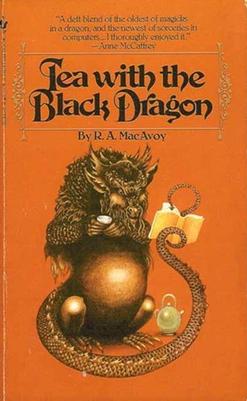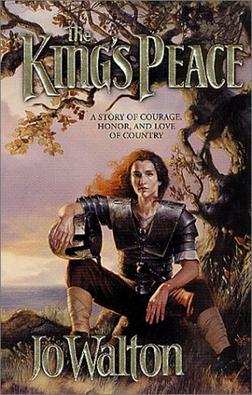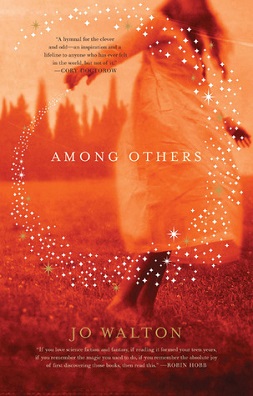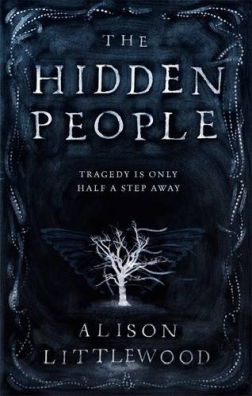
Forgotten Futures is a role-playing game created by Marcus Rowland to allow people to play in settings inspired by Victorian and Edwardian science fiction and fantasy. Most of its releases begin with these stories then add background material to explain the settings, adventures, and other game material.

Tehanu, initially subtitled The Last Book of Earthsea, is a fantasy novel by the American author Ursula K. Le Guin, published by Atheneum in 1990. It is the fourth novel set in the fictional archipelago Earthsea, published almost twenty years after the first three Earthsea novels (1968–1972), and not the last, despite its subtitle. It won the annual Nebula Award for Best Novel and the Locus Award for Best Fantasy Novel.

Only Begotten Daughter is a 1990 fantasy novel by American writer James K. Morrow, setting the stage for his later Godhead Trilogy. The book shared the 1991 World Fantasy Award with Ellen Kushner's Thomas the Rhymer. It was also nominated for the Nebula Award for Best Novel in 1990, and both the Locus and John W. Campbell Memorial Awards in 1991.

Jo Walton is a Welsh-Canadian fantasy and science fiction writer and poet. She is best known for the fantasy novel Among Others, which won the Hugo and Nebula Awards in 2012, and Tooth and Claw, a Victorian-era novel with dragons which won the World Fantasy Award in 2004. Other works by Walton include the Small Change series, in which she blends alternate history with the cozy mystery genre, comprising Farthing, Ha'penny and Half a Crown. Her fantasy novel Lifelode won the 2010 Mythopoeic Award, and her alternate history My Real Children received the 2015 Tiptree Award.

Margaret Astrid Lindholm Ogden, known by her pen names Robin Hobb and Megan Lindholm, is an American writer of speculative fiction. As Hobb, she is best known for her fantasy novels set in the Realm of the Elderlings, which comprise the Farseer, Liveship Traders and Tawny Man trilogies, the Rain WildChronicles, and the Fitz and the Fool trilogy. Lindholm's writing includes the urban fantasy novel Wizard of the Pigeons and science fiction short stories, among other works. As of 2018, her fiction has been translated into 22 languages and sold more than 4 million copies.
Kate Elliott is the pen name of American fantasy and science fiction writer Alis A. Rasmussen.

The fantasy of manners is a subgenre of fantasy literature that also partakes of the nature of a comedy of manners. Such works generally take place in an urban setting and within the confines of a fairly elaborate, and almost always hierarchical, social structure. The term was first used in print by science fiction critic Donald G. Keller in an article, The Manner of Fantasy, in the April 1991 issue of The New York Review of Science Fiction.

The Wood Wife is a novel by American writer Terri Windling, published by Tor Books in 1996. It won the Mythopoeic Award for Novel of the Year. It is Windling's first novel; she is better known as a longtime editor of fantasy and speculative fiction. Set in the mountain outskirts of contemporary Tucson, Arizona, the novel could equally be described as magical realism, contemporary fantasy, or mythic fiction. Windling draws on myth, folklore, poetry, and the history of surrealist art to tell the story of a woman who finds her muse in a spirited desert landscape. The plot revolves around a reclusive English poet, Davis Cooper, and his lover, Mexican surrealist painter Anna Naverra—a character reminiscent of the real-life Mexican painter Remedios Varo.

Tea with the Black Dragon is a 1983 fantasy novel by American writer R. A. MacAvoy. It led to a sequel, Twisting the Rope.

Susan Palwick is an American writer and associate professor emerita of English at the University of Nevada, Reno. She began her professional career by publishing "The Woman Who Saved the World" for Isaac Asimov's Science Fiction Magazine in 1985.

The Dragon Waiting: A Masque of History is a 1983 historical fantasy novel by American writer John M. Ford. It won the 1984 World Fantasy Award for Best Novel. This book, set in an alternate history, contains such plot elements as vampirism, the House of Medici, and the convoluted English politics surrounding Edward IV and Richard III. It also deals with the fate of the Princes in the Tower.

Prophecy: Child of Earth is a fantasy novel by American writer Elizabeth Haydon, first published in 2000 by Tor Books. It is the second book in The Symphony of Ages series. In it, Rhapsody, Grunthor and Achmed work to find a place in the new world.

The King's Peace is a fantasy novel by Welsh-Canadian writer Jo Walton, published by Tor Books in October 2000. The first of Walton's published novels, it is also the first of three "Sulien" novels. It was followed in 2001 by a sequel, The King's Name, and in 2002 by a prequel, The Prize in the Game. The novels are a reinterpretation of the story of King Arthur.

The King's Name is a fantasy novel by Welsh-Canadian writer Jo Walton, published by Tor Books in October 2001. It was Walton's second novel and a sequel to her first, The King's Peace. A prequel, The Prize in the Game, was published in 2002.

An Eye for an Eye is a novel by Anthony Trollope written between 13 September and 10 October 1870, but held back from publication until August 1878 when serialization began in the Whitehall Review. Publication in the form of a two volume novel was timed to coincide with the issue of the final serialized episodes in January 1879.

Among Others is a 2011 fantasy novel written by Welsh-Canadian writer Jo Walton, published originally by Tor Books. It is published in the UK by Corsair. It won the 2012 Nebula Award for Best Novel, the Hugo Award for Best Novel and the British Fantasy Award, and was a nominee for the World Fantasy Award for Best Novel.

The Hidden People is a historical fantasy and horror novel by English writer Alison Littlewood, first published in October 2016 in the United Kingdom by Jo Fletcher Books. It is based on the 1895 incident in County Tipperary, Ireland, where Bridget Cleary was burnt alive by her husband, who believed she was a fairy changeling.

Swordspoint: A Melodrama of Manners is a 1987 fantasy novel by Ellen Kushner. It is Kushner's debut novel and is one of several books and short stories in the Riverside series. Later editions of the novel were also bundled with three short stories set in the same universe. Swordspoint has been called a defining text of the fantasy of manners subgenre; Kushner was one of the first authors to use the phrase "fantasy of manners" to describe her own and similar works.

Or What You Will is a 2020 metafictional fantasy novel by Jo Walton, about immortality and creativity. It was first published by Tor Books.

An Informal History of the Hugos is a 2018 reference work on science fiction and fantasy written by Jo Walton. In it, she asks if the nominees for the Hugo Award for Best Novel were indeed the best five books of the year, using as reference shortlists from other awards in the genre. After looking at the first 48 years of the award and presenting essays on select nominees, Walton concludes that the Hugo has a 69% success rate. The book was well-received and was itself nominated for a Hugo Award in 2019.



















